Delphi Complete Works of Nathaniel Hawthorne (Illustrated)
THE COMPLETE WORKS OF
NATHANIEL HAWTHORNE
(1804-1864)
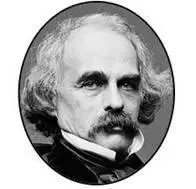
Contents
The Novels
FANSHAWE
THE SCARLET LETTER
THE HOUSE OF THE SEVEN GABLES
THE BLITHEDALE ROMANCE
THE MARBLE FAUN
THE DOLLIVER ROMANCE
SEPTIMIUS FELTON
DOCTOR GRIMSHAWE'S SECRET
THE ANCESTRAL FOOTSTEP
The Short Story Collections
TWICE-TOLD TALES
GRANDFATHER'S CHAIR
MOSSES FROM AN OLD MANSE
THE SNOW-IMAGE, AND OTHER TWICE-TOLD TALES
A WONDER-BOOK FOR GIRLS AND BOYS
TANGLEWOOD TALES
THE DOLLIVER ROMANCE AND OTHER PIECES
THE GHOST OF DOCTOR HARRIS
The Short Stories
LIST OF SHORT STORIES IN CHRONOLOGICAL ORDER
LIST OF SHORT STORIES IN ALPHABETICAL ORDER
The Non-Fiction
BIOGRAPHICAL STORIES FOR CHILDREN
THE LIFE OF FRANKLIN PIERCE
OUR OLD HOME
CHIEFLY ABOUT WAR MATTERS
The Notebooks
PASSAGES FROM THE AMERICAN NOTE-BOOKS: VOLUME I
PASSAGES FROM THE AMERICAN NOTE-BOOKS: VOLUME II
PASSAGES FROM THE ENGLISH NOTE-BOOKS: VOLUME I
PASSAGES FROM THE ENGLISH NOTE-BOOKS: VOLUME II
PASSAGES FROM THE FRENCH AND ITALIAN NOTE-BOOKS: VOLUME I
PASSAGES FROM HAWTHORNE'S NOTE-BOOKS IN FRANCE AND ITALY: VOLUME II
The Criticism
HAWTHORNE by Henry James
Extract from ‘MY LITERARY PASSIONS’ by William Dean Howells
Extract from ‘ESSAYS BEFORE A SONATA’ by Charles Ives
Extract from ‘ADVENTURES AMONG BOOKS’ by Andrew Lang
Extract from ‘HOURS IN A LIBRARY’ by Leslie Stephen
Extract from ‘FOUR AMERICANS’ by Henry A. Beers
The Biographies
THE LIFE AND GENIUS OF NATHANIEL HAWTHORNE by Frank Preston Stearns
HAWTHORNE AND HIS CIRCLE by Julian Hawthorne
MEMORIES OF HAWTHORNE by Rose Hawthorne Lathrop
NATHANIEL HAWTHORNE by George E. Woodberry
A STUDY OF HAWTHORNE by George Parsons Lathrop

© Delphi Classics 2011
Version 2

THE COMPLETE WORKS OF
NATHANIEL HAWTHORNE
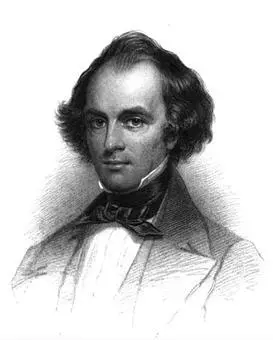
Interested in Hawthorne?
Then you’ll love this eBook…
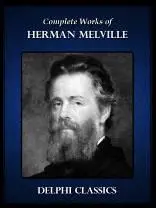
Delphi’s new edition introduces the complete works of Herman Melville for the first time in digital print, with scarce short stories and poems, spiced with beautiful illustrations and bonus texts.
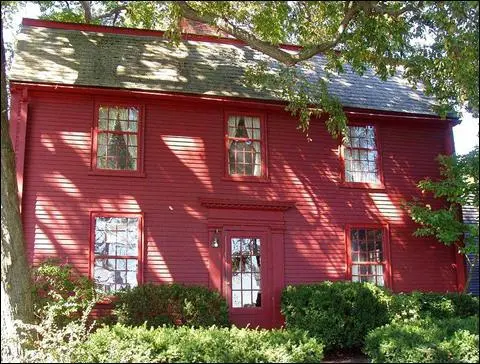
27 Hardy Street, Salem, Massachusetts — Hawthorne’s birthplace
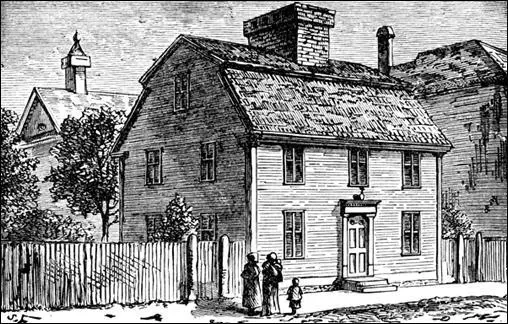
Hawthorne’s birthplace in contemporary times

Hawthorne’s first novel was published anonymously in 1828. Fanshawe is based on the author’s experiences as an undergraduate at Bowdoin College in the early 1820s. Hawthorne financed the publication of the novel himself, and it was largely unnoticed. After its commercial failure, he burned the unsold copies and never mentioned it to anyone. The novel was so rare and Hawthorne was so secretive, that after his death his wife Sophia insisted her husband had never written a novel with that title, even when being shown a copy.
The narrative concerns Dr. Melmoth, the President of Harley College, who takes into his care Ellen Langton, the daughter of a friend at sea. The ward is a young, beautiful girl, who attracts the attentions of the college boys, especially Edward Walcott, a sturdy though immature student, and Fanshawe, the reclusive intellectual.
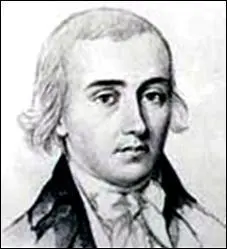
Nathaniel Hawthorne Sr. — the author’s father, a sea captain
CONTENTS
INTRODUCTORY NOTE.
CHAPTER I.
CHAPTER II.
CHAPTER III.
CHAPTER IV.
CHAPTER V
CHAPTER VI.
CHAPTER VII.
CHAPTER VIII.
CHAPTER IX.
CHAPTER X.
INTRODUCTORY NOTE.
FANSHAWE.
In 1828, three years after graduating from Bowdoin College, Hawthorne published his first romance, “Fanshawe.” It was issued at Boston by Marsh & Capen, but made little or no impression on the public. The motto on the title-page of the original was from Southey: “Wilt thou go on with me?”
Afterwards, when he had struck into the vein of fiction that came to be known as distinctively his own, he attempted to suppress this youthful work, and was so successful that he obtained and destroyed all but a few of the copies then extant.
Some twelve years after his death it was resolved, in view of the interest manifested in tracing the growth of his genius from the beginning of his activity as an author, to revive this youthful romance; and the reissue of “Fanshawe” was then made.
Little biographical interest attaches to it, beyond the fact that Mr. Longfellow found in the descriptions and general atmosphere of the book a decided suggestion of the situation of Bowdoin College, at Brunswick, Maine, and the life there at the time when he and Hawthorne were both undergraduates of that institution.
Professor Packard, of Bowdoin College, who was then in charge of the study of English literature, and has survived both of his illustrious pupils, recalls Hawthorne's exceptional excellence in the composition of English, even at that date (1821-1825); and it is not impossible that Hawthorne intended, through the character of Fanshawe, to present some faint projection of what he then thought might be his own obscure history. Even while he was in college, however, and meditating perhaps the slender elements of this first romance, his fellow-student Horatio Bridge, whose “Journal of an African Cruiser” he afterwards edited, recognized in him the possibilities of a writer of fiction — a fact to which Hawthorne alludes in the dedicatory Preface to “The Snow-Image.”
G. P. L.
FANSHAWE
CHAPTER I.
“Our court shall be a little Academe.” — SHAKESPEARE.
In an ancient though not very populous settlement, in a retired corner of one of the New England States, arise the walls of a seminary of learning, which, for the convenience of a name, shall be entitled “Harley College.” This institution, though the number of its years is inconsiderable compared with the hoar antiquity of its European sisters, is not without some claims to reverence on the score of age; for an almost countless multitude of rivals, by many of which its reputation has been eclipsed, have sprung up since its foundation. At no time, indeed, during an existence of nearly a century, has it acquired a very extensive fame; and circumstances, which need not be particularized, have, of late years, involved it in a deeper obscurity. There are now few candidates for the degrees that the college is authorized to bestow. On two of its annual “Commencement Days,” there has been a total deficiency of baccalaureates; and the lawyers and divines, on whom doctorates in their respective professions are gratuitously inflicted, are not accustomed to consider the distinction as an honor. Yet the sons of this seminary have always maintained their full share of reputation, in whatever paths of life they trod. Few of them, perhaps, have been deep and finished scholars; but the college has supplied — what the emergencies of the country demanded — a set of men more useful in its present state, and whose deficiency in theoretical knowledge has not been found to imply a want of practical ability.
The local situation of the college, so far secluded from the sight and sound of the busy world, is peculiarly favorable to the moral, if not to the literary, habits of its students; and this advantage probably caused the founders to overlook the inconveniences that were inseparably connected with it. The humble edifices rear themselves almost at the farthest extremity of a narrow vale, which, winding through a long extent of hill-country, is wellnigh as inaccessible, except at one point, as the Happy Valley of Abyssinia. A stream, that farther on becomes a considerable river, takes its rise at, a short distance above the college, and affords, along its wood-fringed banks, many shady retreats, where even study is pleasant, and idleness delicious. The neighborhood of the institution is not quite a solitude, though the few habitations scarcely constitute a village. These consist principally of farm-houses, of rather an ancient date (for the settlement is much older than the college), and of a little inn, which even in that secluded spot does not fail of a moderate support. Other dwellings are scattered up and down the valley; but the difficulties of the soil will long avert the evils of a too dense population. The character of the inhabitants does not seem — as there was, perhaps, room to anticipate — to be in any degree influenced by the atmosphere of Harley College. They are a set of rough and hardy yeomen, much inferior, as respects refinement, to the corresponding classes in most other parts of our country. This is the more remarkable, as there is scarcely a family in the vicinity that has not provided, for at least one of its sons, the advantages of a “liberal education.”
Having thus described the present state of Harley College, we must proceed to speak of it as it existed about eighty years since, when its foundation was recent, and its prospects flattering. At the head of the institution, at this period, was a learned and Orthodox divine, whose fame was in all the churches. He was the author of several works which evinced much erudition and depth of research; and the public, perhaps, thought the more highly of his abilities from a singularity in the purposes to which he applied them, that added much to the curiosity of his labors, though little to their usefulness. But, however fanciful might be his private pursuits, Dr.
1 comment